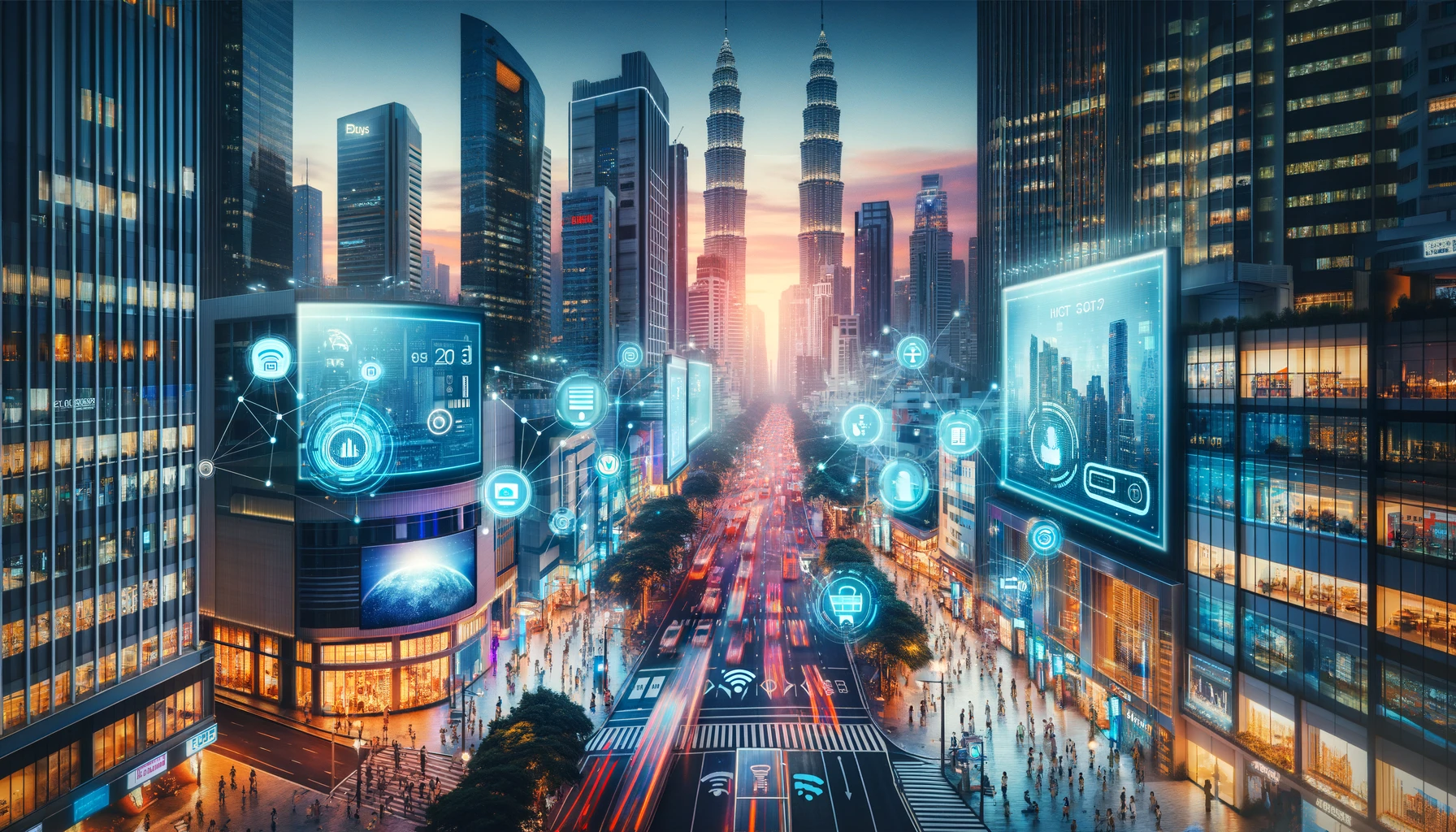
Smart cities are revolutionizing the way we live, work, and interact with our environment. These urban areas leverage advanced technologies such as the Internet of Things (IoT), Artificial Intelligence (AI), and Big Data to enhance the quality of life for residents, improve city services, and promote sustainable growth. Governments play a pivotal role in these initiatives, funding, and implementing the infrastructure needed for these technologies to flourish. But did you know these smart city initiatives also create exciting new opportunities for marketers? Let’s dive in and explore how!
Smart Cities, Smarter Marketing
Overview of Smart City Technologies
Smart city technologies encompass a wide range of innovations designed to improve urban living. Here’s a quick rundown:
- Internet of Things (IoT): IoT devices collect and share data to optimize city functions like traffic management, waste collection, and energy usage.
- Artificial Intelligence (AI): AI powers smart city applications, from predictive maintenance in public transport to personalized city services for residents.
- Big Data: Large datasets are analyzed to gain insights and make data-driven decisions for urban planning and management.
These technologies are seamlessly integrated into urban planning and management, making cities more efficient and livable.
Government Involvement in Smart Cities
Governments are the backbone of smart city projects. They provide the necessary funding, create policies, and build the infrastructure required for these technologies. Let’s look at a few examples:
- Singapore: The government’s Smart Nation initiative integrates technology into every aspect of city life, from transportation to healthcare.
- Barcelona: The city’s smart initiatives include IoT-enabled streetlights and waste management systems, all supported by local government policies.
- Amsterdam: The Smart City program, driven by the municipality, focuses on sustainable energy, mobility, and digital connectivity.
These examples illustrate how government support is crucial in transforming cities into smart, connected hubs.
New Marketing Channels Created by Smart Cities
Smart cities open up a treasure trove of new marketing opportunities. Here are a few ways marketers can tap into this potential:
Digital Billboards and IoT
Digital billboards equipped with IoT sensors can deliver targeted advertisements based on real-time data. Imagine walking past a billboard that changes its message based on the time of day or weather conditions. This dynamic approach can significantly enhance consumer engagement.
Public Wi-Fi and Mobile Apps
Many smart cities offer free public Wi-Fi and city-specific mobile apps. These platforms are perfect for targeted advertisements and promotions. Businesses can reach out to potential customers with personalized offers as they navigate the city.
Data Collection and Analytics
Smart cities generate vast amounts of data. By leveraging this data, marketers can gain deep insights into consumer behavior and preferences. For instance, knowing the busiest times in certain areas can help businesses tailor their marketing strategies to maximize impact.
Case Studies
Let’s look at a couple of real-life examples where marketers have successfully utilized smart city channels:
- LinkNYC in New York City: This initiative replaced old payphones with digital kiosks offering free Wi-Fi, phone calls, and device charging. Advertisers can display dynamic content on these kiosks, targeting specific demographics based on location data.
- Smart bins in London: These IoT-enabled bins offer Wi-Fi and display targeted ads. They collect data on foot traffic, allowing advertisers to tailor their messages to the right audience at the right time.
These case studies highlight the potential of smart city technologies to revolutionize marketing strategies.
Ethical Considerations and Challenges
While the opportunities are immense, there are also ethical considerations and challenges to keep in mind:
- Privacy Concerns: Collecting and using consumer data must be done responsibly. Marketers need to ensure they comply with privacy laws and regulations.
- Data Security: Safeguarding the data collected from smart city technologies is crucial to prevent breaches and misuse.
- Regulatory Challenges: Navigating the regulatory landscape can be complex, as different cities have varying laws and policies regarding data usage and advertising.
Future Trends in Smart City Marketing
The future of smart city marketing is incredibly promising. Here are a few trends to watch out for:
- Enhanced Personalization: With advancements in AI and data analytics, marketing messages will become even more personalized and relevant to individual consumers.
- Interactive Public Spaces: Expect to see more interactive billboards and public installations that engage consumers in new and exciting ways.
- Sustainability Marketing: As smart cities focus on sustainability, there will be more opportunities for marketers to promote eco-friendly products and services.214us.us

